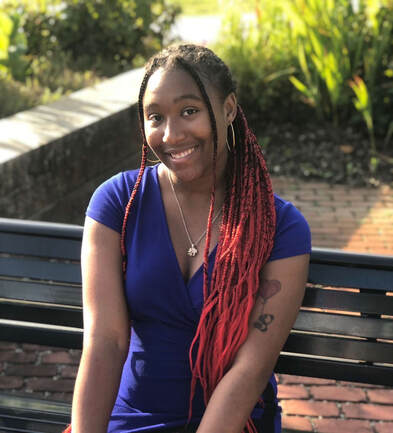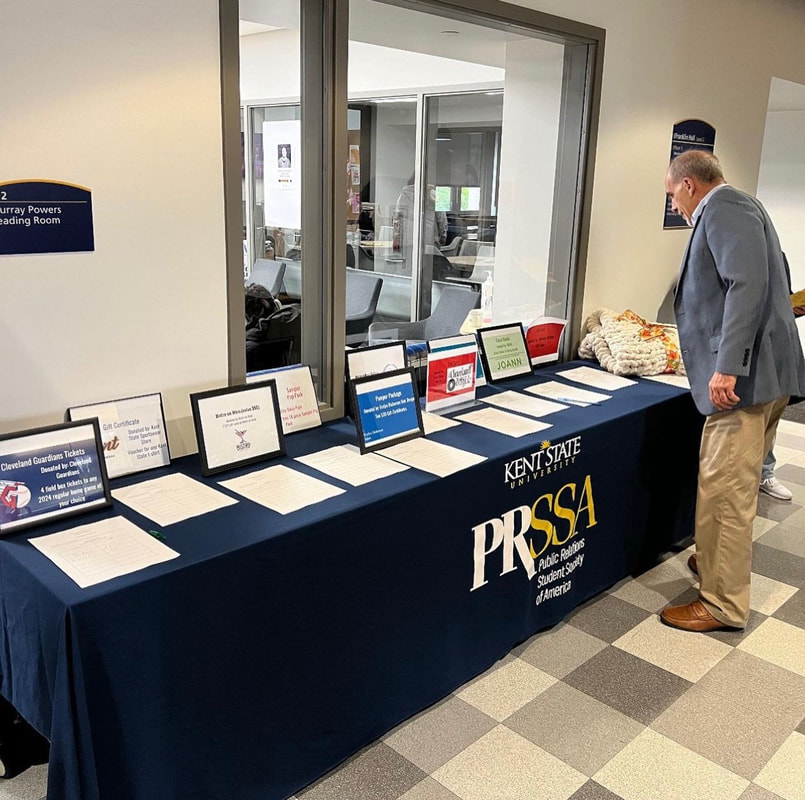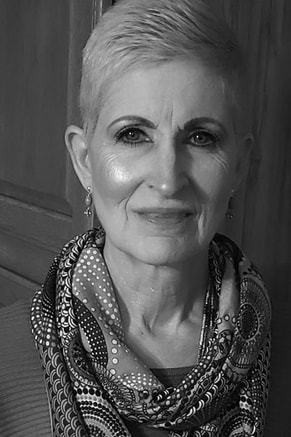|
Chania Crawford
The reasoning behind the Cleveland’s MLB name change In the 2022 Baseball Season, Cleveland’s resident MLB team officially changed its name from the Cleveland Indians to the Cleveland Guardians. The team was known as the Cleveland Indians from 1915 to 2021, and the decision to change the name came from a place of progression and new beginnings for the Cleveland baseball team. During the beginning stage of the name change process, the team spoke to several representatives from the Indigenous American community locally and nationally. The team was able to gather different opinions and viewpoints, ultimately helping their decision to officially change their name from the Cleveland Indians to the Cleveland Guardians. According to the Cleveland Guardians website, they found several consistent themes throughout their discussion. Some of the themes they found are as follows:
The team additionally involved fans, stakeholders, and local Cleveland residents to vote and provide input on new name ideas, one of those ideas being the current name “Cleveland Guardians.” “We are committed to making a positive impact in our community and embrace our responsibility to advance social justice and equality.” The team said in a social media post. “Our organization fully recognizes our team name is among the most visible ways in which we connect with the community.” The significance of the Cleveland Guardian’s name change There were many debates among Cleveland baseball fans on social media; many didn’t understand the need for a name change, while some fans did. Ultimately, it came down to the team looking to practice better Corporate Social Responsibility, cultural sensitivity and inclusivity. According to Investopedia, a world-leading source of financial terms, companies who engage in Corporate Social Responsibility are conscious of their impact on all aspects of society, including economic, social and environmental. It’s important to note when dealing with a situation such as a name change for the baseball team; the company needed to look at the bigger picture. Just because fans didn’t find the former name offensive and damaging to the reputation of American Indigenous people didn’t mean it wasn’t offensive. The company took the proper steps of having difficult conversations with the underrepresented community and found that it was in the best interest of their key publics to change the name to something non-offensive. To some, the name change may be seen as “stupid” or unnecessary because the name “Cleveland Indians” never affected them negatively. Still, it’s important to put yourself in other people's shoes and look at these issues from a new perspective to truly understand the purpose of the name change. The name change created a sense of belonging between the team and its fans, especially for the American Indigenous community. No longer would the name “Cleveland Indians” perpetuate a caricature stereotype of the American Indigenous community. To read more about the process and decision-making behind the name change, visit the team's website at https://www.mlb.com/guardians/fans/cleteamname/key-learnings
0 Comments
Q: How long have you been a member of PRSSA?
A: This is my third year as a member! Q: What is your favorite part about being on the exec board? A: I really enjoy connecting with my peers and fellow PRSSA members across the country. It also gives me a chance to have experience in leadership roles before I graduate. Q: What has been your favorite class so far? A: PR Publications. Q: If you could only eat one meal for the rest of your life, what would it be? A: A deep-fried California roll Q: Who would you want to be stranded on a deserted island with? A: Bear Grylls Q: What is a fun fact about yourself? A: I have two Netherlands Dwarf rabbits, Jasmine and Peter! Blake Serrano
When senior communication studies major Jaelyn “JB” Brown first came to Kent State, she did not know the adventures that would be in store for her throughout her college career. “I came into college not knowing what I wanted to do so I chose to be an exploratory major,” Brown said. Joining the exploratory program would serve as a pivotal moment for Brown, as she was able to connect with her mentor who was a communication studies major and public relations minor. “She told me that if I majored in communication studies and minored in public relations I would be able to meet amazing people, network with others and gain useful skills,” Brown said. After hearing her mentor’s advice, Brown took Principles of Public Relations with Professor Michele Ewing and Public Relations Case Studies with Professor Stephanie Smith. She decided to declare a minor in public relations, launching her into a field with endless opportunities. “I fell in love with the classes and the coursework it offered,” JB said. “I self-reflected and came to the realization that I was going to continue taking PR classes.” This semester, Brown was one of three students representing the College of Communication and Information on Kent State University’s homecoming court. She was also one of two representing the public relations program. “It was honestly surreal,” Brown said. “Being able to represent the public relations program and CCI was just an amazing feeling, and I loved that there were multiple students from our college on the court.” While being on the homecoming court, Brown utilized important skills that she learned in her public relations coursework. “Everything that I was doing on court I was thinking about it from a PR or communications perspective,” Brown said. “My degree is always in the back of my mind whenever I do something.” Utilizing her platform and creativity, Brown partnered with the College of Communication and Information’s Banned Book Reading event and hosted a book drive. “I thought it would be cool if we collected books from students, community members or anyone that has old books they want to get rid of,” Brown said. “CCI served as the inspiration behind the event and I was fortunate to be able to put on the drive.” Serving on homecoming court was not the only thing Brown has done to represent CCI. Brown is an active member of the CCI Ambassadors program where she is able to talk to incoming students about her experience at Kent State University. “The work I do there has a lot to do with public relations as well,” Brown said. “We’re hosting events, posting reels on social media and coming up with other ideas to get people to join our college.” In her ambassador’s program, Brown aims to create a welcoming and belonging atmosphere to draw in prospective students. Brown hopes that these students can make Kent State their home just as she does. “Belonging is that warm and comfortable feeling knowing you have people you can lean on on your bad days and celebrate with you on your good days,” Brown said. “Our professors in CCI and the public relations program incorporate belonging very well.” Overall, Brown is proud of the work she has done representing CCI on campus and is grateful for all of the opportunities she has received. “Being able to represent everything that I stand for on this campus was amazing,” Brown said. Macy Rosen
PRSSA Kent recently hosted another successful Homecoming Silent Auction, aligning with its mission to foster connections between students and professional public relations practitioners in collaboration with the Public Relations Society of America (PRSA). PRSSA engages its members through various activities, including professional meetings, the National ICON Conference, bi-weekly educational programs and an annual scholarship for outstanding PR students. The purpose of the silent auction was to generate money to support PRSSA members who traveled to Nashville, Tennessee, October 13–17, 2023 for the National ICON Conference. We were thankful to receive a variety of donated items with proceeds contributing to chapter expenses. Donors included notable companies and individuals, such as Akhia Communications, Davey Tree, Handel's Homemade Ice Cream, JOANN, Bistro on Main, Cleveland Guardians, Michele Ewing, Glenbeigh, Marcus Thomas, Daisy Pops, Kent State Sportswear, Defiance Tattoos, The Ohio Wine Producers Association, Cleveland Cavaliers, Mattress Factory Museum, Esporta, The Candle Studio, Evelyn Dickerson Salon, Michele Ewing/Lakeside Golf Course, Cleveland Bagel Cafe/Evan Bailey, Belleria, Smucker's and Ballet Theatre of Ohio. We would like to express our appreciation to everyone who donated to the auction, and everyone who participated and placed bids. The auction raised a total of $1,824.53 for the chapter. The auction not only showcased the generosity of these contributors but also demonstrated the vibrant support and collaboration within the PRSSA Kent community. For more information about PRSSA Kent and its activities, visit http://www.prssakent.com and http://www.prsa.org. Blake Serrano
From working with the Central Intelligence Agency to becoming an Assistant Professor in the School of Media and Journalism, Professor Stephanie Smitih’s illustrious career in public relations centers back on the importance of helping and advocating for others. Recently, Professor Smith held an event that allowed peace marshals to facilitate open dialogue about the current state of the Israel and Palestine conflict. The event was open to enrolled Kent State students seeking to educate themselves about the conflict. “We wanted to have a forum where students can learn how to have constructive dialogue about polarizing topics,” Smith said. Smith believes that hearing perspectives from all sides can encourage students to ask questions, reflect deeply and begin to develop the tools of talking to people outside of their echo chamber. “We tend to surround ourselves with people who think like ourselves, but then a terrible event like this happens,” Smith said. “We must give students the chance to be who they are and not be judged to make them feel safe.” Creating safe spaces ultimately brings peaceful and non-hostile environments for students, Smith added. The event is one of many coordinated by Professor Smith advocating for social change. Last year, she held an event educating students about what was happening with Iranian women in their country. “Not a lot of students knew about this topic, but we want them to,” Smith said. “I’m always trying to get students together to talk about things that matter to them or should.” Giving students a chance to learn how to advocate for themselves and their communities ultimately inspired Smith to develop a curriculum for the Media Advocacy minor. “We recognized students wanted to apply their majors towards social justice,” Smith said. “The minor became the answer to students’ strong desire to use the skills they have toward solving societal problems.” Smith credits the support of College of Communication & Information students, as well as faculty for working to establish the Media Advocacy program. “When students tell you that they want to add a program like Media Advocacy and you have a Dean who is all in for it, I think that’s really powerful,” Smith said. During the creation process, Smith recognized the overlap between the minor and programs such as political science, sociology, public health, communication studies and more. As a result, Smith incorporated a multidisciplinary program that would appeal to all students. “We believe that this program has an appeal across the university and that courses across the university can make this a strong minor, not just in the College of Communication & Information,” Smith said. Advocating for yourself in an organization remains an important topic of conversation for all future professionals. Smith noted that future public relations professionals must stay educated on important social topics to provide counsel for senior executives. “Organizations will look at their PR counsel to understand when the right time is to address an issue in a way that is meaningful and not performative,” Smith said. “The trouble is, it often is performative because they’re not sure what to do, and they do not want to offend a bunch of people.” By directly talking to communities, companies and PR professionals can work to enact real change and improve relations with marginalized groups or populations. “We can apply our gift for capturing voices to help the voiceless around us by directly asking communities what’s real, what hurts and what’s meaningful to them,” Smith said. |
Archives
February 2024
Categories
All
|




 RSS Feed
RSS Feed
